World
International Criminal Court: 20 years, billions spent, limited success as US considers sanctions
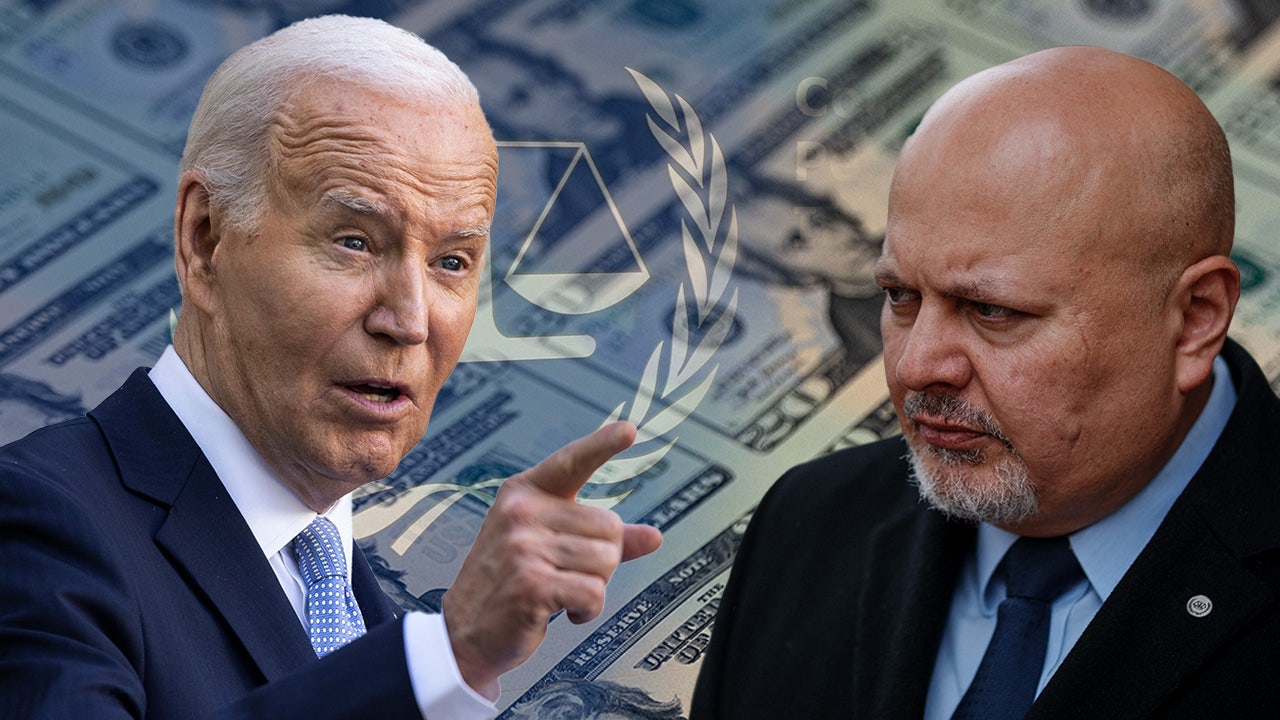
As the U.S. weighs sanctions against the International Criminal Court (ICC) over potential arrest warrants for Israeli officials, some experts have questioned the value of the court, given its track record since its founding.
“[The ICC] has been around for over two decades, [but] it has less than 10 successful prosecutions,” Orde Kittrie, a senior fellow at the Foundation for Defense of Democracies and law professor at Arizona State University’s Sandra Day O’Connor College of Law, told Fox News Digital. “It’s spent over $2 billion. It’s been really ineffective.”
As of July 2022, 31 cases have appeared before the ICC, which resulted in 10 convictions and four acquittals. The court has issued 37 arrest warrants, with 21 people ultimately detained while 12 people remain at large, according to the European Union’s External Action Service.
The ICC’s total annual budget for 2023 totaled around $183,500,000, which is an increase of around $34,500,000 or around 20% increase from 2022’s budget.
VISA BANS FOR ICC OFFICIALS URGED BY BIPARTISAN SENATORS AFTER ISRAEL ARREST WARRANT REQUESTS
Member states each bear a portion of the overall budget based on the size of their economies, with the most significant funds coming from large European economies, Japan, South Korea, Australia and Brazil, according to the Journal of Human Rights.
Japan ranked as the largest contributor in 2022 with around $26,850,000, while Germany and France rank thereafter with around $19,000,000 and $14,400,000, respectively.
President Biden speaks during a Jewish American Heritage Month reception in the Rose Garden of the White House on May 20, 2024. (Samuel Corum/Sipa/Bloomberg via Getty Images)
Appropriations for the court are divided into nine categories: the Judiciary, Office of the Prosecutor, the Registry, Secretariat of the Assembly of States Parties, Premises, Secretariat of the Trust Fund for Victims, Permanent Premises Project – Host State Loan, Independent Oversight Mechanism and Office of Internal Audit. The court also notes that “assets that the Court holds are normally not held to generate commercial returns and are therefore non-cash generating assets,” meaning it must build its budget from contributions alone.
Even with that sizable budget, and the significant increase year over year, the court relies heavily on the cooperation of members to enable its operations. Outgoing Registrar Peter Lewis in 2023 said the court faced an unprecedented workload – even before taking on the investigation into alleged crimes in the Gaza Strip – and that state parties’ cooperation remained crucial to any success.
US ALLIES FRANCE, BELGIUM DEFEND ICC PROSECUTOR’S REQUEST FOR ISRAELI ARREST WARRANTS
US sanctions
This makes any sanctions against the organization a potentially crippling measure: Then-President Trump in 2020 authorized an asset freeze and family entry ban against ICC officials after the court opened investigations into alleged U.S. war crimes conducted in Afghanistan.
“The ICC Prosecutor … thinks the Biden administration is more interested in a cozy relationship with the ICC than with protecting Israelis and Americans from its power grab,” Anne Bayefsky, director of the Touro Institute on Human Rights and the Holocaust as well as president of Human Rights Voices, told Fox News Digital.
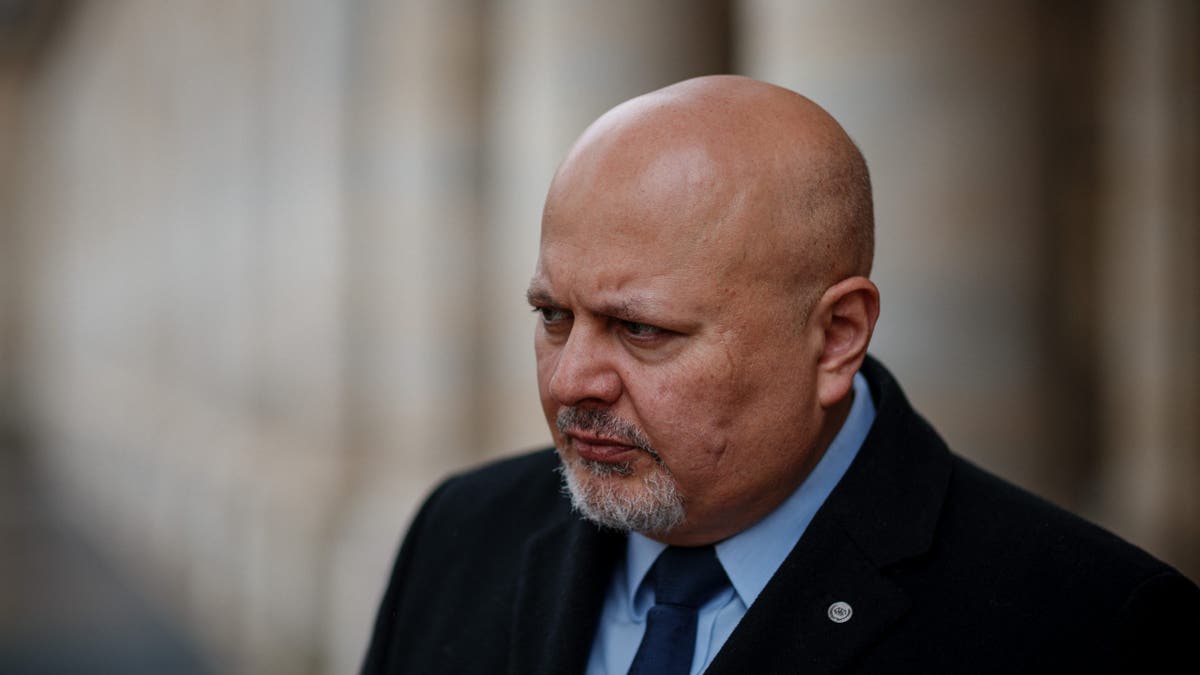
International Criminal Court prosecutor Karim Khan (Dimitar Dilkoff/AFP via Getty Images)
“If President Biden does not immediately invoke the American Service Members Protection Act, terminate all cooperation and support of the ICC, and use his authority to sanction ICC officials for their outrageous prosecution – actually persecution – of the democratic representatives of the Jewish state … justice will have been dealt a disastrous blow,” Bayefsky said.
The Biden administration increased its cooperation with the ICC, offering assistance and intelligence to the court to bolster its investigation into alleged Russian war crimes during the invasion of Ukraine, though Kittrie noted that the ICC case against Putin “hasn’t made a difference” and possibly merely added “some sense” of legitimacy for the ICC prosecutor.
PROGRESSIVE SENATOR BACKS POTENTIAL ICC ARREST WARRANT FOR NETANYAHU: ‘UNPRECEDENTED WAR’
Bayefsky and others have urged the Biden administration to invoke the American Servicemembers Protection Act and sanction the ICC in response to any arrest warrants for Israeli officials.
During a speech in the Rose Garden on Wednesday at a press conference with Kenyan President William Ruto, Biden reiterated that the U.S. “made our position clear on the ICC … we don’t recognize the jurisdiction of the ICC, the way it’s being exercised, and it’s that simple. We don’t think there’s an equivalence between what Israel did and Hamas did.”
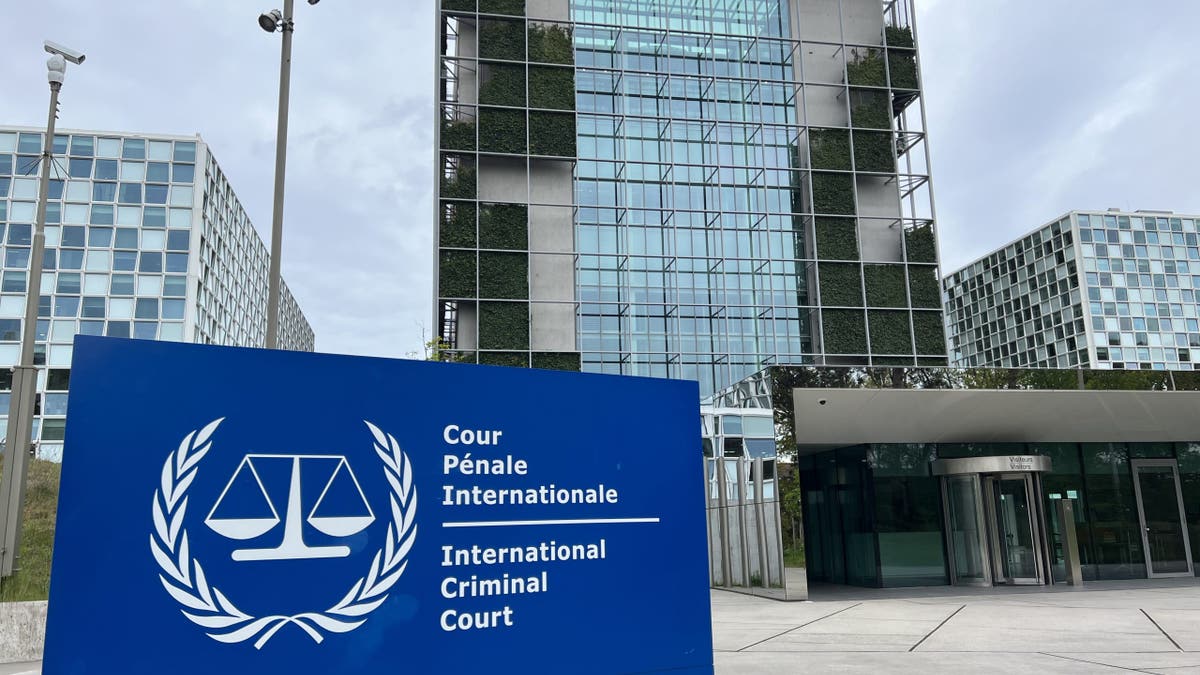
This view shows the International Criminal Court building in The Hague in the Netherlands on April 30, 2024. (Selman Aksunger/Anadolu via Getty Images)
The Rome Statute counts 124 signatories, including most of Africa, Europe and South America, but it does not include some notable holdouts: the United States, China, Russia, Ukraine, Israel, Saudi Arabia, Iran, North Korea and Turkey, among others.
The Biden administration reversed the sanctions but reinforced the position that the U.S. continued to “disagree strongly with the ICC’s actions relating to the Afghanistan and Palestinian situations.”
The Center for Constitutional Rights argued that the sanctions delayed critical investigations at the ICC, “directly and indirectly negatively” impacting the work at the ICC, though perhaps not as drastically as the U.S. would have hoped.
ISRAEL SLAMS GERMAN GOVERNMENT’S VOW TO ARREST PRIME MINISTER NETANYAHU OVER ICC WARRANT
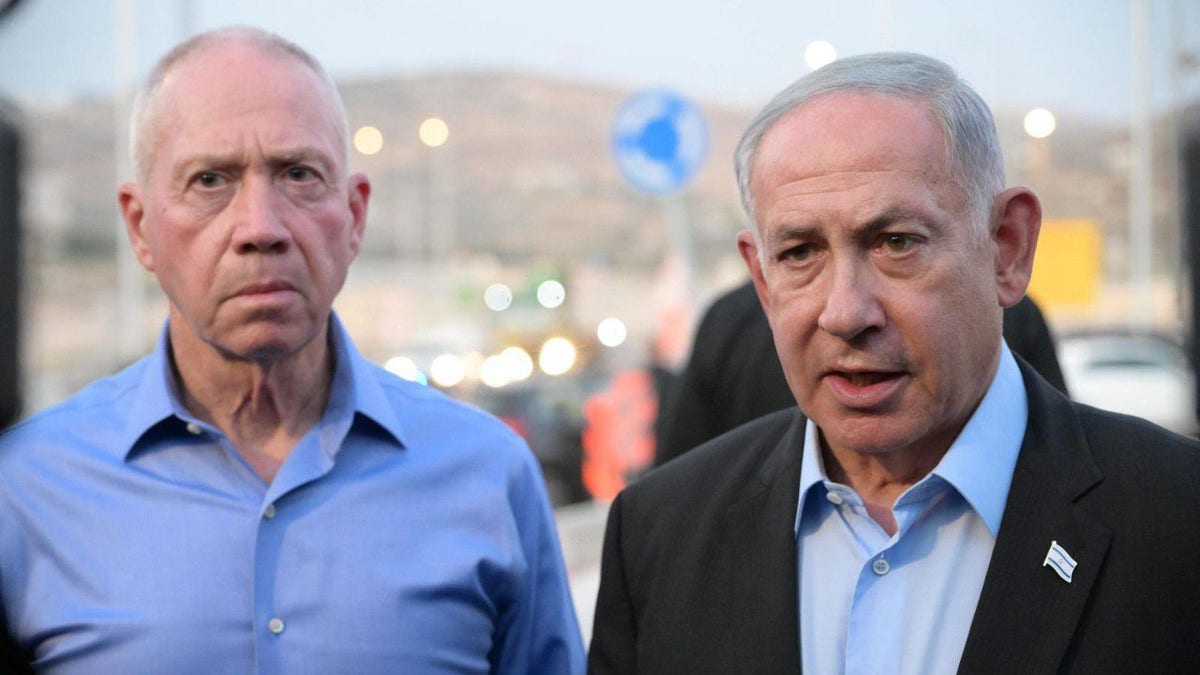
Israeli Prime Minister Benjamin Netanyahu, right, and Israeli Defense Minister Yoav Gallant are pictured in the West Bank in August 2023. (Amos Ben-Gershom (GPO)/Handout/Anadolu Agency via Getty Images)
Instead, the group argued that the sanctions created a difficult working relationship for the ICC and any potential collaborators, such as civil society organizations, investigators, lawyers and victims who would worry about facing similar sanctions for helping the ICC.
The ICC, which commenced operations in 2002, bases its authority on the signatories of the Rome Statute, which outlines four core international crimes that the court will prosecute: genocide, crimes against humanity, war crimes, and crimes of aggression, all of which are “not subject to any statute of limitations” but limited to only crimes that occurred after the statute came into force.
President Clinton signed the statute in 2000, but he demanded that the eventual ICC should address “fundamental concerns” before he or any other U.S. president considered putting the statute before the U.S. Senate for ratification. The Bush administration took it a step further, withdrawing the U.S. signature and instead adopting the American Servicemembers Protection Act.
Also known as the “Hague Invasion Act,” the law allows the president to use “all means necessary and appropriate to bring about the release” of U.S. or allied citizens detained or imprisoned by the ICC.
The bill also prevents the U.S. from providing support for the ICC, per Sec. 2004: The U.S. is prohibited from responding to requests for cooperation, of providing support to the court (including from law enforcement), of helping with extradition and using appropriated funds to assist the court, among others.

World
Celine Dion Makes Triumphant Comeback at Paris Olympics Opening Ceremony — Watch Full Performance

ad
World
95 Libyan nationals arrested in South Africa at suspected secret military training camp
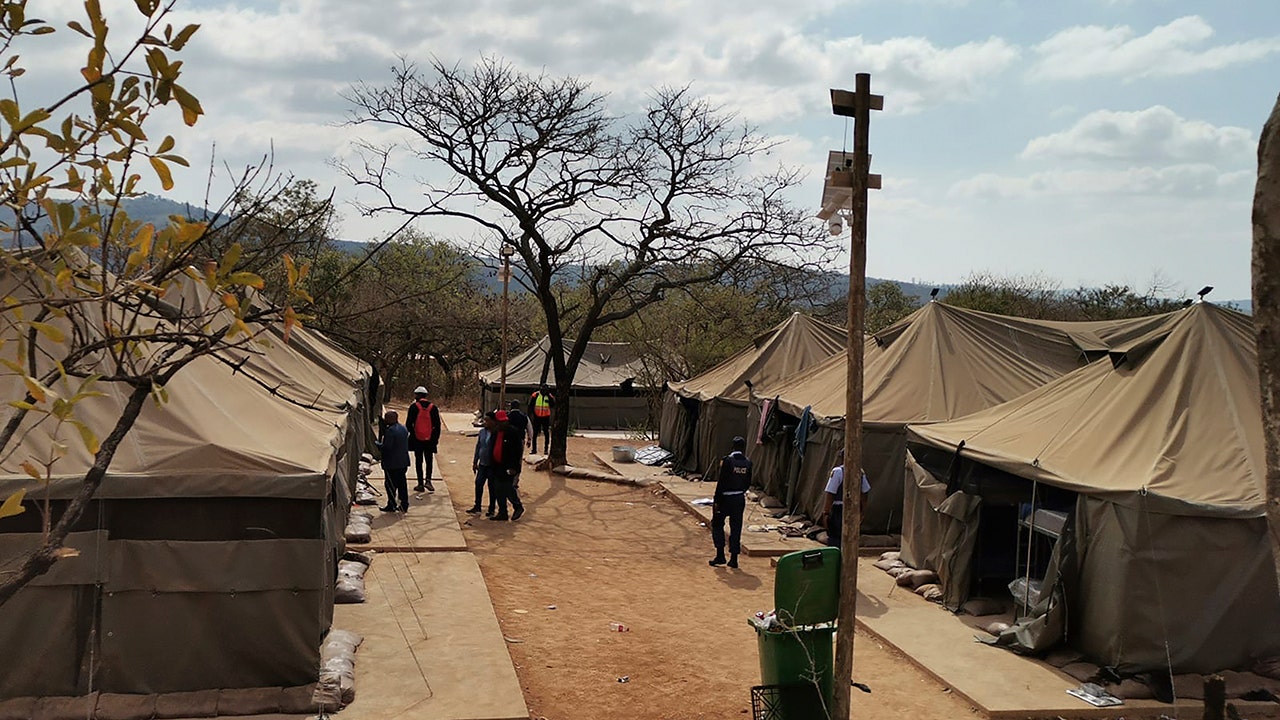
South African police arrested 95 Libyan nationals in a raid on a suspected secret military training camp on Friday and authorities said they were investigating whether there were more illegal bases in other parts of the country.
The camp was discovered at a farm in White River in the Mpumalanga province, about 360 kilometers (220 miles) northeast of Johannesburg, police said.
ELEPHANTS KILL TOURIST IN SOUTH AFRICA AFTER HE TRIED TO GET CLOSE TO TAKE PICTURES
National police spokesperson Athlenda Mathe said in a post on the social media site X that the Libyans stated they had entered the country on study visas to train as security guards, but police investigations suggest they have received military training.
The Newzroom Afrika TV news channel broadcast pictures of the site of the arrests, showing a military-style camp with large green and khaki tents set up in a row. Dozens of men were seen lining up as they were arrested. They were wearing civilian clothing.
Local government official Jackie Macie said investigations were ongoing and the owner of the farm would be questioned. He said authorities received information that there were similar secret camps near two other towns in Mpumalanga province.
A camp where 95 Libyan nationals were arrested on suspicion of running an illegal military camp are seen lining up after their arrest on Friday, July 26, 2024 in White River, South Africa. Police say that 95 Libyan nationals were arrested on suspicion of receiving training at a secret military camp in the north of the country. (AP Photo/Bulelwa Maphanga)
The province borders neighboring countries Mozambique and Swaziland and is an area of concern for South African authorities with regards to illegal immigration.
Police and authorities have not said whether the camps are suspected of being connected to a particular group or conflict.
Macie said investigations would establish if there was a network of camps in South Africa and show “why they are here doing military training in our country.”
Police said the men may be linked to crimes reported in communities close to the farm in recent months.
“We have serious cases which have been opened with the police, including cases of rape and armed robberies, which complainants claim were committed by unknown foreigners who seem to be of Asian descent,” said police spokesman Donald Mdhluli.
“We take what we have found here today very seriously because we don’t know who was training them, what were they being trained for and why that training is happening here in South Africa. It may be a threat not only to South Africa but also to the entire southern Africa region.”
Police said the operation to arrest the Libyans and close down the camp began two days ago. Macie said the Libyan nationals had been in the country since at least April.
“The 95 individuals taken into custody are all Libyan nationals and are currently being questioned by the relevant authorities,” Mpumalanga acting provincial police commissioner Maj. Gen. Zeph Mkhwanazi said in a statement.
Mdhluli, the police spokesman, said the country’s security regulator had confirmed that the kind of training that appears to have been taking place at the camp was well beyond the scope of training for security guards.
“The kind of equipment we found here shows that there was intense military training taking place here. This was basically a military base.”
World
Passengers face long, uncertain wait at stations amid rail disruption

A deliberate fire in a signal box about 60 km south of Lille caused the disruption on the northern high-speed line, with traffic halted around 5 a.m. local time on Friday.
Travel was severely disrupted in Lille on Friday, one of the stations affected by the sabotage that hit major French rail lines ahead of the Paris Olympics opening ceremony.
Many passengers waited with hope that soon turned to resignation.
“We’ve been waiting since 10:38 a.m. for the 11:38 a.m. train, and now we’re just waiting for it to arrive at 2:08 p.m.,” said Delphine, one of the stranded passengers.
“It’s still quite a delay, and we’ll be even later since we’re on a secondary route. I work in Avignon at 9 p.m., so it’s going to be very, very tight. We have a concert tonight — will it even happen? This is all very confusing, and we don’t understand what’s going on.”
For one traveller, this was a rough start to the holidays. “The worst case would be if the train is cancelled entirely and we have to buy new tickets for next week. It would shorten our already brief vacation. That would be a huge problem,” said Hippolyte.
When asked if he had been informed of the delays, Hippolyte said he received the notification just before departure.
“At around 10 a.m. this morning, we were told we were an hour late and would be leaving at 1 p.m.”
“It just keeps getting later as the day goes on. Every time we approach the new departure time, it gets pushed back another hour and a half, or half an hour each time.”
A deliberate fire in a signal box about 60 km south of Lille caused the disruption on the northern high-speed line. Traffic was halted around 5 a.m. on Friday.
The recent acts of sabotage on the rail network highlight that the Olympic Games are turning France into a prime target.
The attack disrupted the transport system on the opening day of the Games, causing delays of up to two hours or even cancellations that affected hundreds of thousands of passengers nationwide.
Authorities in Paris have said they are deploying substantial human resources to counter any threats and to ensure the safety of the events.
-

 World1 week ago
World1 week agoOne dead after car crashes into restaurant in Paris
-

 Midwest1 week ago
Midwest1 week agoMichigan rep posts video response to Stephen Colbert's joke about his RNC speech: 'Touché'
-

 News1 week ago
News1 week agoVideo: Young Republicans on Why Their Party Isn’t Reaching Gen Z (And What They Can Do About It)
-

 Movie Reviews1 week ago
Movie Reviews1 week agoMovie Review: A new generation drives into the storm in rousing ‘Twisters’
-

 News1 week ago
News1 week agoIn Milwaukee, Black Voters Struggle to Find a Home With Either Party
-

 Politics1 week ago
Politics1 week agoFox News Politics: The Call is Coming from Inside the House
-

 News1 week ago
News1 week agoVideo: J.D. Vance Accepts Vice-Presidential Nomination
-

 World1 week ago
World1 week agoTrump to take RNC stage for first speech since assassination attempt















